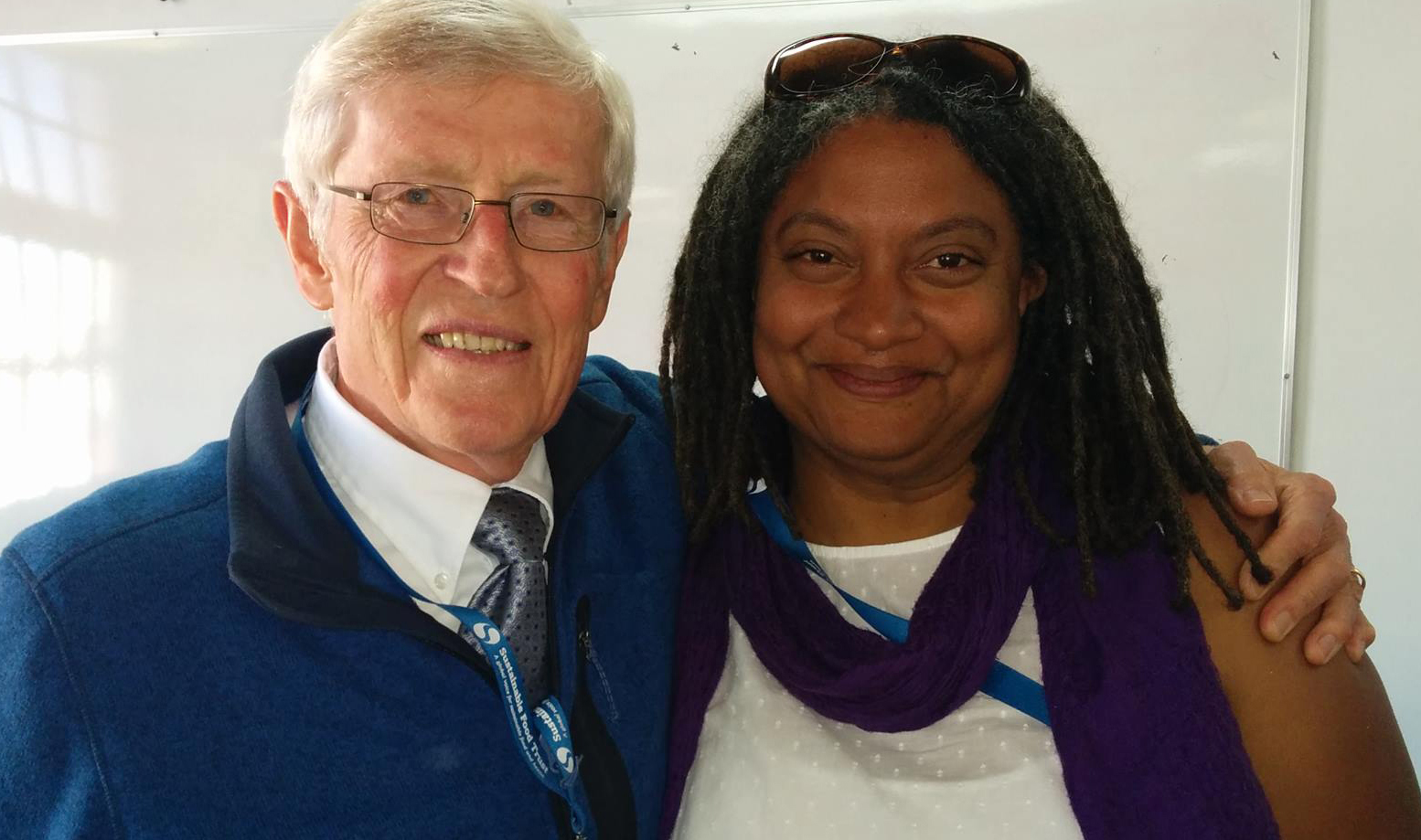
In his keynote speech at EcoFarm 2018, John Ikerd proposed that “Eliminating hunger is the first requisite of agricultural sustainability.” John told us, as he has written before, that “Thus far, the sustainable agriculture movement has put far more emphasis on the second requisite for sustainability than on the first—on developing an ecologically sound, economically viable approach to farming.” And he backed this up with what may be a startling statistic to some: “In 1968, when CBS-TV aired its classic documentary, “Hunger in America,” an estimated 5% of the people in the U.S. were hungry, which was considered a national emergency. Nearly fifty years later, in 2015, more than 12% of Americans were “food insecure” and more than 16% of American children lived in food insecure homes.” The world, he reminded us, grows plenty of food and yet a large portion of its inhabitants go hungry, or live in fear of doing so, regularly.
John’s fellow keynote speaker, Doria Robinson localized the issue for us. Doria told us about the work that she and her colleagues at Urban Tilth are doing in Richmond, growing food for their community, including that community in decision making, production and more. They are building a resilient community, one that attempts to feed it members, rather than growing for a market, which would default to feed the population who could afford it, while leaving those who could not out. This is a very different goal than business as usual, which posits that if we produce enough everyone will somehow get fed, and never seems to deliver. Not only does Urban Tilth switch the paradigm, growing first for their community, but they honor the second requisite, in caring for the earth and food in the process, knowing that the earth and food will then care for them.
After a short break, Hank Herrera and I joined John Ikerd and Doria Robinson for a workshop, which would take the conversation one level deeper. John talked with us about ideas for local distribution, about “community food utilities”, which would be built upon the notion of feeding the community, rather than filling commodity markets. Hank told us not only about the work that New Hope Farms has been doing in Western Contra Costa County raising food and selling it locally, but also, along with Doria, about the ideas that they have been looking to implement, creating a network of farms, processors, distributors and stores which work together to implement the idea that feeding the community comes first, anticipating the ideas that John had described. My own contributions included the idea of local investment, particularly through Slow Money, with whom I work, to get those who can afford to fund this work, generally through low-interest, high-impact loans, to also become a positive force in creating this local, healthy, resilient community, by making sure that their money circulated in their community, enriching it, rather than departing for unknown shareholders far away.
This being EcoFarm, a lively discussion followed, with an engaged crowd asking questions, contributing their own ideas, examples and, perhaps most especially, enthusiasm to the issue. It is energizing to see so many attendees at EcoFarm want to wrap their arms around the First Requisite and so increase the priority of Eliminating Hunger among those of ecological farming.
By Peter Ruddock
Listen to John and Doria's workshop recording when you purchase the 2018 Workshop Audio Recordings.
Watch their keynote presentation on YouTube.
